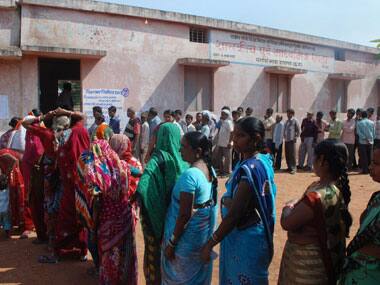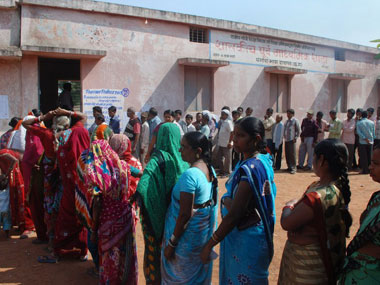As the elections approach, the debate over opinion polls and exit polls is unlikely to die down any time soon. After a sting operation on the C-voter survey, a pre-poll agency whose surveys are used by various news outlets, questions were raised on both the legitimacy and necessity of these surveys. Political parties have for long opposed opinion polls as and when they found the results going against them. When the pre-poll surveys before state elections predicted a Congress defeat, the party issued an advisory to its workers asking them to not turn up in TV shows based on these polls. [caption id=“attachment_1439099” align=“alignleft” width=“380”]
 Representational image. AFP.[/caption] In a debate moderated by Rajdeep Sardesai on CNN IBN, right after the C-voter incident, sociologist and political analyst Dipankar Gupta said that just because there have been instances of manipulation, doesn’t mean the process should be banned yet. Columnist Vivek Dehejia in his column in the Business Standard counters opinions expressed by other journalists which emphasised that it would be foolish to say that opinion polls actually influenced the voter. Dehejia cites a research by Manasa Patnam which looks at exit polls in India and says that voters might actually be influenced by exit polls. Summarising Patnam’s findings,
Dehejia writes:
“If early voters heavily favour party “A” over “B” - merely because early-voting regions contain a disproportionate share of “A” supporters - there might be a momentum swing in favour of “A”, which would not have occurred if a different region had voted first. On the other hand, heavy early support for “A” could galvanise supporters of “B” voting in later phases of the election to come and support their party in greater numbers, and so there might be the opposite impact.” If that is indeed the case, then the argument against the existence of opinion polls gains in legitimacy. However, like Gupta pointed out, instead of banning the polls completely, there is merit in appointing an independent regulatory body to keep a watch in these polls. But exit polls aren’t the only medium to influence opinion and spread rumours among voters. In this age of social media, it wouldn’t be too difficult to make impressions, courtesy the mammoth internet armies most parties have. Word-of-mouth, village meets, informal gatherings - there are more than just one means through which ideas can be spread among voters. Read the complete Business Standard article
here.
Manasa Patnam’s original paper on how opinion polls can influence voters can be found
here
.
Representational image. AFP.[/caption] In a debate moderated by Rajdeep Sardesai on CNN IBN, right after the C-voter incident, sociologist and political analyst Dipankar Gupta said that just because there have been instances of manipulation, doesn’t mean the process should be banned yet. Columnist Vivek Dehejia in his column in the Business Standard counters opinions expressed by other journalists which emphasised that it would be foolish to say that opinion polls actually influenced the voter. Dehejia cites a research by Manasa Patnam which looks at exit polls in India and says that voters might actually be influenced by exit polls. Summarising Patnam’s findings,
Dehejia writes:
“If early voters heavily favour party “A” over “B” - merely because early-voting regions contain a disproportionate share of “A” supporters - there might be a momentum swing in favour of “A”, which would not have occurred if a different region had voted first. On the other hand, heavy early support for “A” could galvanise supporters of “B” voting in later phases of the election to come and support their party in greater numbers, and so there might be the opposite impact.” If that is indeed the case, then the argument against the existence of opinion polls gains in legitimacy. However, like Gupta pointed out, instead of banning the polls completely, there is merit in appointing an independent regulatory body to keep a watch in these polls. But exit polls aren’t the only medium to influence opinion and spread rumours among voters. In this age of social media, it wouldn’t be too difficult to make impressions, courtesy the mammoth internet armies most parties have. Word-of-mouth, village meets, informal gatherings - there are more than just one means through which ideas can be spread among voters. Read the complete Business Standard article
here.
Manasa Patnam’s original paper on how opinion polls can influence voters can be found
here
.
Can exit polls really affect a party's poll fortunes?
FP Staff
• March 18, 2014, 16:32:57 IST
With the elections approach, the debate over opinion polls and exit polls is least likely to die down anytime soon. After a sting operation on the C-voter survey, a pre-poll survey agency, subscribed to by various news outlets, questions were raised on both the legitimacy and necessity of these surveys.
Advertisement
)
End of Article